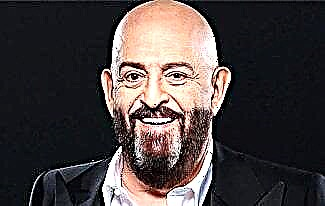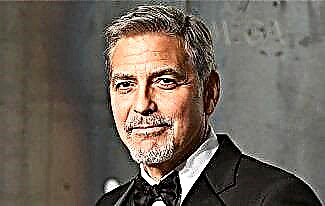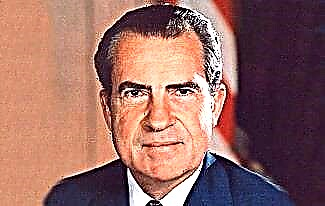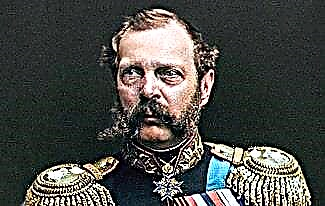Language is the very first and most complex tool that a person uses. It is the oldest, most versatile and defining instrument of humanity. Without language, a small community of people could not exist, not to mention modern civilization. No wonder science fiction writers who sometimes try to imagine what the world would be like without rubber, metals, wood, etc., it never occurs to imagine a world without language - such a world, in our understanding of the word, simply cannot exist.

A person treats everything that was not created by him (and also to the created one) with great curiosity. Language is no exception. Of course, we will never know who was the first to think about why we call bread bread, and for the Germans it is “brot”. But with the development of society, such questions began to be asked more and more often. Educated people began to put them, immediately trying - by reasoning for the time being - to find answers. With the advent of written literature, there was competition, and therefore criticism, noting the shortcomings of the language. For example, A.S. Pushkin once responded in writing to a critical analysis of one of his works, which contained 251 claims.

During his lifetime, Pushkin was often subjected to merciless criticism
Gradually, the linguistic rules were systematized, and the people involved in this systematization began - sometimes many years after death - to be called linguists. The dissection of languages was put on a scientific basis with divisions, disciplines, schools, communities and even their dissidents. And it turned out that linguistics can parse a language down to morpheme-molecules, but it still has not been possible to create a harmonious system and classify parts of the language.
1. The history of linguistics sometimes begins to lead almost from the time of the appearance of the first writing systems. Of course, as a science, linguistics arose much later. Most likely, this happened around the 5th-4th centuries BC. e., when in ancient Greece began to study rhetoric. The learning process included reading the texts of various speeches and analyzing them from the point of view of literacy, style, construction. In the first centuries A.D. e. in China there were lists of hieroglyphs, identical to the current dictionaries, as well as collections of rhymes (the beginning of modern phonetics). Mass studies of languages began to appear in the 16th - 17th centuries.
2. How accurate linguistics is a science can be judged by the many years (and still ended) international discussion about parts of speech. Only the noun remained intact in this discussion. The right to be parts of speech was denied to both quantitative and ordinal numbers and interjections, participles were written in adjectives, and gerunds became adverbs. The Frenchman Joseph Vandries, apparently in despair, decided that there are only two parts of speech: a name and a verb - he did not find any fundamental differences between a noun and an adjective. Russian linguist Alexander Peshkovsky was less radical - in his opinion, there are four parts of speech. He added a verb and an adverb to the noun and adjective. Academician Viktor Vinogradov singled out 8 parts of speech and 5 particles. And this is not at all the affairs of bygone days, it was in the twentieth century. Finally, the Academic Grammar of 1952-1954 speaks of 10 parts of speech, and in the same grammar of the 1980 edition there are also ten parts of speech. Was the truth born in a dispute? No matter how it is! The number and names of the parts of speech coincide, but the mass of words wanders from one part of speech to another.
3. As in any science, linguistics has sections, there are about a dozen of them, from general linguistics to dynamic linguistics. In addition, a number of disciplines have arisen at the intersection of linguistics with other sciences.

4. There is a so-called. amateur linguistics. Official, “professional” linguists consider its adepts amateurs and often use the word “pseudoscientific”. The adherents themselves consider their theories to be the only correct ones and accuse the professionals of clinging to their outdated theories because of their academic titles and positions. The language studies of Mikhail Zadornov can be considered a typical example of amateur linguistics. Amateur linguists are characterized by the desire to look for Russian roots in all words of all languages. Moreover, the roots corresponding, for example, to ancient geographical names, are taken from the modern Russian language. Another “trick” of amateur philology is the search for hidden, “primordial” meanings in words.

Mikhail Zadornov in the last years of his life was seriously engaged in amateur linguistics. London is "bosom on the Don"
5. Chronologically, the first representative of amateur linguistics was, most likely, Academician Alexander Potebnya. This major theorist of linguistics of the 19th century, along with outstanding works on grammar and etymology of the word, was the author of works in which he quite freely interpreted the motives of the behavior of fairy-tale and mythological characters. In addition, Potebnya linked the words “fate” and “happiness” with the Slavic ideas about God. Now researchers gently call the scientist an extraordinary person solely out of respect for his scientific merits.

Alexander Potebnya considered himself a Great Russian, and the Little Russian dialect was a dialect. In Ukraine, this does not bother anyone, because Potebnya worked in Kharkov, which means he is a Ukrainian
6. The sound aspects of the language are studied by phonetics. This is usually a well-developed branch of linguistics. The founder of Russian phonetics is considered to be a scientist with the phonetically beautiful surname Baudouin de Courtenay for the Russian ear. True, the name of the great academician was really in Russian: Ivan Alexandrovich. In addition to phonetics, he was well versed in other aspects of the Russian language. For example, preparing for publication a new edition of Dahl's dictionary, he introduced vulgar abusive vocabulary into it, for which he was mercilessly criticized by colleagues - they did not think of such revolutionary edits. Under the leadership of Baudouin de Courtenay, a whole school of scientists worked, which pretty much trampled the field of phonetics. Therefore, for the sake of subsistence, modern scientists studying sound phenomena in a language have to declare words like “northA”, “southA”, “capacity”, etc., as a linguistic norm - people work, study.
7. The life of IA Baudouin de Courtenay is interesting not only because of his enormous contribution to linguistics. The scientist was active in politics. He was nominated for the post of president of independent Poland. The elections, which were held in 1922 in three rounds, Baudouin de Courtenay lost, but it was for the best - the president-elect Gabriel Narutovich was soon killed.
I. Baudouin de Courtenay
8. Grammar studies the principles of combining words with each other. The first book on the grammar of the Russian language was published by the German Heinrich Ludolph in Latin. Morphology studies how the word changes to "fit" with the sentence neighbors. The way words are combined into larger structures (phrases and sentences) learns syntax. And spelling (spelling), although it is sometimes called a section of linguistics, is actually an approved set of rules. The norms of modern grammar of the Russian language are described and established in the 1980 edition.
9. Lexicology deals with the meaning of words and their combinations. Within lexicology there are at least 7 more “-logies”, but only stylistics has practical significance in everyday life. This section explores connotations - the hidden, latent meanings of words. A connoisseur of Russian stylistics will never - without obvious grounds - call a woman “chicken” or “sheep”, since in Russian these words have a negative connotation with regard to women - stupid, stupid. The Chinese stylist will also call a woman “chicken” only if absolutely necessary. In doing so, he will have in mind the low social responsibility of the described one. “Sheep” in Chinese is a symbol of perfect beauty. In 2007, the head of one of the districts in Altai, ignorance of the stylistics cost 42,000 rubles. At the meeting, he called the head of the village council "a goat" (the verdict says: "one of the farm animals, whose name has a clearly offensive connotation"). The lawsuit of the head of the village council was satisfied by the magistrate's court, and the victim received 15,000 compensation for moral damage, the state - 20,000 fines, and the court was satisfied with 7,000 rubles for costs.
10. Lexicology can be called a poor relative in the family of branches of linguistics. Phonetics and grammar have solid older relatives soaring somewhere in the heavenly heights - theoretical phonetics and theoretical grammar, respectively. They do not stoop to the everyday life of banal stresses and cases. Their lot is to explain how and why everything that exists in the language turned out. And, concurrently, the headache of most philology students. Theoretical lexicology does not exist.
11. The great Russian scientist Mikhail Vasilyevich Lomonosov not only made discoveries in natural science. He also noted himself in linguistics. In particular, in "Russian grammar" he was the first linguist to draw attention to the category of gender in the Russian language. The general tendency at that time was to attribute inanimate objects to the middle genus (and that was progress, for there were 7 genders in the grammar of Smotritsa). Lomonosov, who, in principle, refused to drive language into schemes, considered the attribution of names of objects to genders unmotivated, but recognized the prevailing realities of the language.

M.V. Lomonosov created a very sensible grammar of the Russian language
12. The work of very peculiar linguists is described in George Orwell's dystopia "1984". Among the government bodies of the fictional country there is a department whose thousands of employees daily remove “unnecessary” words from dictionaries. One of those working in this department logically explained the necessity of his work by the fact that the language absolutely does not need many synonyms of the word, for example, “good”. Why all these “commendable”, “glorious”, “sensible”, “exemplary”, “adorable”, “worthy”, etc., if the positive quality of an object or person can be expressed in one word “plus”? The power or meaning of a quality can be emphasized without using words like “excellent” or “brilliant” - just say “plus-plus”.

1984: War is peace, freedom is slavery, and there are a lot of unnecessary words in the language
13. In the early 1810s, a heated discussion took place in Russian linguistics, although there were very few linguists at that time. Their role was played by writers. Nikolai Karamzin began to introduce words invented by him into the language of his works, copying similar words from foreign languages. It was Karamzin who invented the words “coachman” and “sidewalk”, “industry” and “human”, “first-class” and “responsibility”. Such mockery of the Russian language angered many writers. Writer and admiral Alexander Shishkov even created a special society to resist innovations, involving such an authoritative writer as Gabriel Derzhavin in it. Karamzin, in turn, was supported by Batyushkov, Davydov, Vyazemsky and Zhukovsky. The result of the discussion is obvious today.

Nikolay Karamzin. It's hard to believe that the word “refinement” appeared in Russian only thanks to him
<14. The compiler of the famous "Explanatory Dictionary of the Living Great Russian Language" Vladimir Dal was not a linguist or even a teacher of literature by profession, although he taught Russian as a student. At first, Dahl became a naval officer, then graduated from the medical faculty of the University of Dorpat (now Tartu), worked as a surgeon, civil servant, and retired only at the age of 58. His work on the "Explanatory Dictionary" lasted 53 years. [caption id = "attachment_5724" align = "aligncenter" width = "618"]
Vladimir Dal was on duty at the bedside of the dying Pushkin until the last minute [/ caption]
15. Automatic translations performed by even the most modern translators are often inaccurate and even cause laughter not at all because the translator is working incorrectly or because he lacks computing power. Inaccuracies are caused by the poor descriptive base of modern dictionaries. Creating dictionaries that fully describe words, all their meanings and use cases is a huge work. In 2016, the second edition of the "Explanatory Combinatorial Dictionary" was published in Moscow, in which the words were described with maximum completeness. As a result, as a result of the work of a large team of linguists, it was possible to describe 203 words. A French dictionary of similar completeness, published in Montreal, describes 500 words that fit into 4 volumes.

People are primarily to blame for inaccuracies in machine translation









